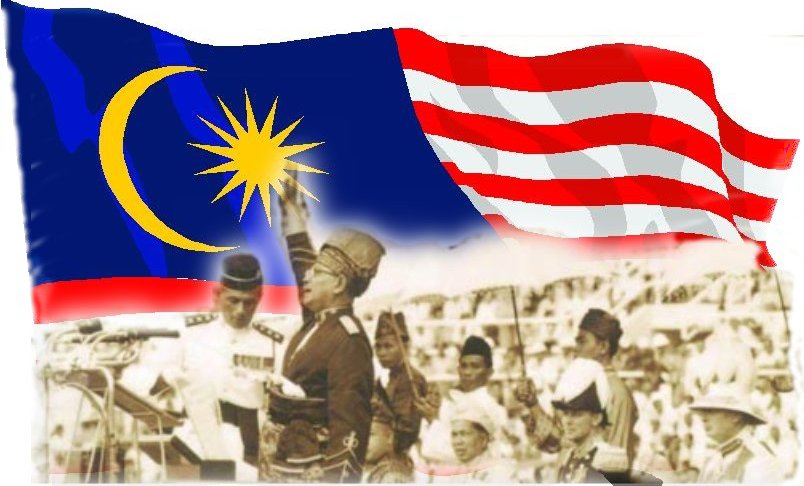Last weekend, Projek Dialog, a non-governmental social discourse project aimed at promoting healthy debate and understanding within multicultural Malaysia, organised a forum entitled Melayu dan makna-maknanya, or “Malay and its meanings.”
I had the honour of being a panellist at that forum, together with Dr Lawrence Ross from Akademi Pengajian Melayu, Universiti Malaya; Syed Muhiyuddin from HAKIM; Syahredzan Johan from Lawyers for Liberty, and Nurhayyu Zainal from Parti Sosialis Malaysia. The forum was moderated by Projek Dialog’s Yana Rizal.
The forum began with Syahredzan enlightening the audience on the Constitutional definition of Malay. According to Article 160 of our country’s highest law, a Malay is defined by three characteristics, viz. a person who professes the religion of Islam, habitually speaks the Malay language, and conforms to Malay customs.
This legalistic definition of Malayness is interesting, because it effectively means that Malay is a political construct rather than an ethnic concept. Technically, this means that a Malay in Malaysia need not necessarily have any Malay genes whatsoever. For example, only in Malaysia would a Javanese identify as a Malay. In Indonesia, for example, no Javanese would ever claim to be a Malay.
Curiously, the Malaysian definition of Malay also prevents other ethnic Malays from qualifiying as Malays. For example, the great Filipino nationalist, José Rizal, an ethnic Malay who is hailed by history as an icon of the Malay race, would actually not qualify as a Malay in Malaysia, by virtue of the fact that he was not a Muslim.
A colonial legacy

In truth, the peoples of the Malay Archipelago are made up of over 300 diverse ethnic groups, such as the Javanese, Batak, Sundanese, Achehnese, Boyanese, Minangkabau, Malay, Mandailing (of which I am descended from) and many others, including the Bugis who are reputed to be great warriors, though such a reputation is today in doubt. Therefore, ethnically, Malays represent a small ethnic group that is one of many others.
How then did Malay become the popular reference for the native ethnic groups in Malaysia (in Indonesia, Malay refers to a small minority ethnic group)? Firstly, it was the British (such as founder of Singapore Stamford Raffles) who began to use the label.
This is mainly because most natives in the region spoke the Malay language ― the de facto lingua franca of the region due to the fact that it was the language used along the Straits of Malacca and the coastal areas of the Archipelago. Hence, even though the Malay ethnic community itself was small, the Malay language was adopted by both foreigners and locals as the trading language of the region.
Having decided to label all the different ethnic natives as Malays, the British decided to streamline it through its official documents such as the government population censuses. And through the colonial policy of divide and conquer, the seeds of polarisation in our country were sowed.
Standardisation of Malay is against the Malay nature itself
It is important to bear in mind that ethnicity is a concept that is far from monolithic or homogenous. Every geographical province or tribe, even within the peninsula itself, have diverse cultural practices and backgrounds. Therefore, ethnicity is an amalgamation of many cultures merged over time.
For example, the Malays in Terengganu and Sarawak have very different dialects. As a Perakian, even I find the east coast Malay dialects to be quite alien. Even cultural practices were different. For example, the Mak Yong, which has Hindu-Buddhist origins, is popular with the Kelantanese Malays, while the Kuda Kepang with its Javanese influence is popular in Johor.
As Dr Lawrence Ross noted, the Malay culture was never homogenous and will always expand and evolve by adapting to its surrounding influences. Therefore, it is also not easily defined and should not adopt strict labelling.
However, our own history has been rewritten by the authorities, as over six decades we have experienced a systematic campaign of standardisation of Malay culture and language. This is in line with the Marxist concept of cultural hegemony, in which the ruling class captures the dominant culture of a society by imposing its own worldview on the masses.
According to Syed Muhiyuddin, Malays should not be afraid to reject the attempt by leaders to enforce an artificial identity upon them. However, in order to do this, we first need to understand our own roots better. Therefore, it is high time that we revise our history textbooks in order to produce a new generation of Malaysians who are proud of their roots.
Reclaiming our identities
In summary, we should not let politicians decide what is Malay and what is not. Our identities are our heritage, and the government has no right to tell us what we are. As Syahredzan said, “The greatest tragedy that has befallen Malay culture and the Malays over the years is actually the hijacking of Malayness by those with vested interests.”
Therefore, it is time we reclaim our identities. Echoing Syahredzan, I am a Muslim, a Malay and a Malaysian, in no specific order. I am all three. That is my identity and no one has the right to take it away from me. - Malay Mail


No comments:
Post a Comment
Note: Only a member of this blog may post a comment.